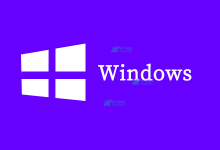Linux and Node.js are two powerful technologies that often go hand in hand. Linux is a computer operating system, a free open-source alternative to microsoft Windows, whilst Node.js is a powerful JavaScript runtime built on Chrome’s V8 JavaScript engine, with lots of features available to create server-side web applications easily.
Using Linux with Node.js can be a great experience for web developers, as the two components work together seamlessly and are easily integrated. Node.js web applications can be built with just a few lines of code and deployed on any Linux machine with just a few clicks. For example, the following Node.js code will start a web server and listen on port 8080:
const http = require('http');
const hostname = '127.0.0.1';
const port = 8080;
const server = http.createServer((req, res) => {
res.statusCode = 200;
res.setHeader('Content-Type', 'text/plain');
res.end('Hello World\n');
});
server.listen(port, hostname, () => {
console.log(`Server running at http://${hostname}:${port}/`);
});
Node.js also comes with a package manager called NPM (Node Package Manager). This makes it incredibly easy to include libraries and frameworks into our project and use them right away. It is an incredibly powerful tool and can save web developers hours of work.
Node.js is just one of the many great technologies available on Linux. With Linux, users have access to an immense range of open-source tools, applications and programs, so they can build the perfect development environment to suit their needs. Linux also has an incredibly active support community, so web developers can easily find help and advice to get the most out of their development stack.
The combination of Linux and Node.js is just one way for web developers to take advantage of the immense amount of exciting open-source technologies available. Whether you are just getting started with web development or are a more experienced programmer, there is no denying the power and potential of this combination.

 国外主机测评 - 国外VPS,国外服务器,国外云服务器,测评及优惠码
国外主机测评 - 国外VPS,国外服务器,国外云服务器,测评及优惠码








